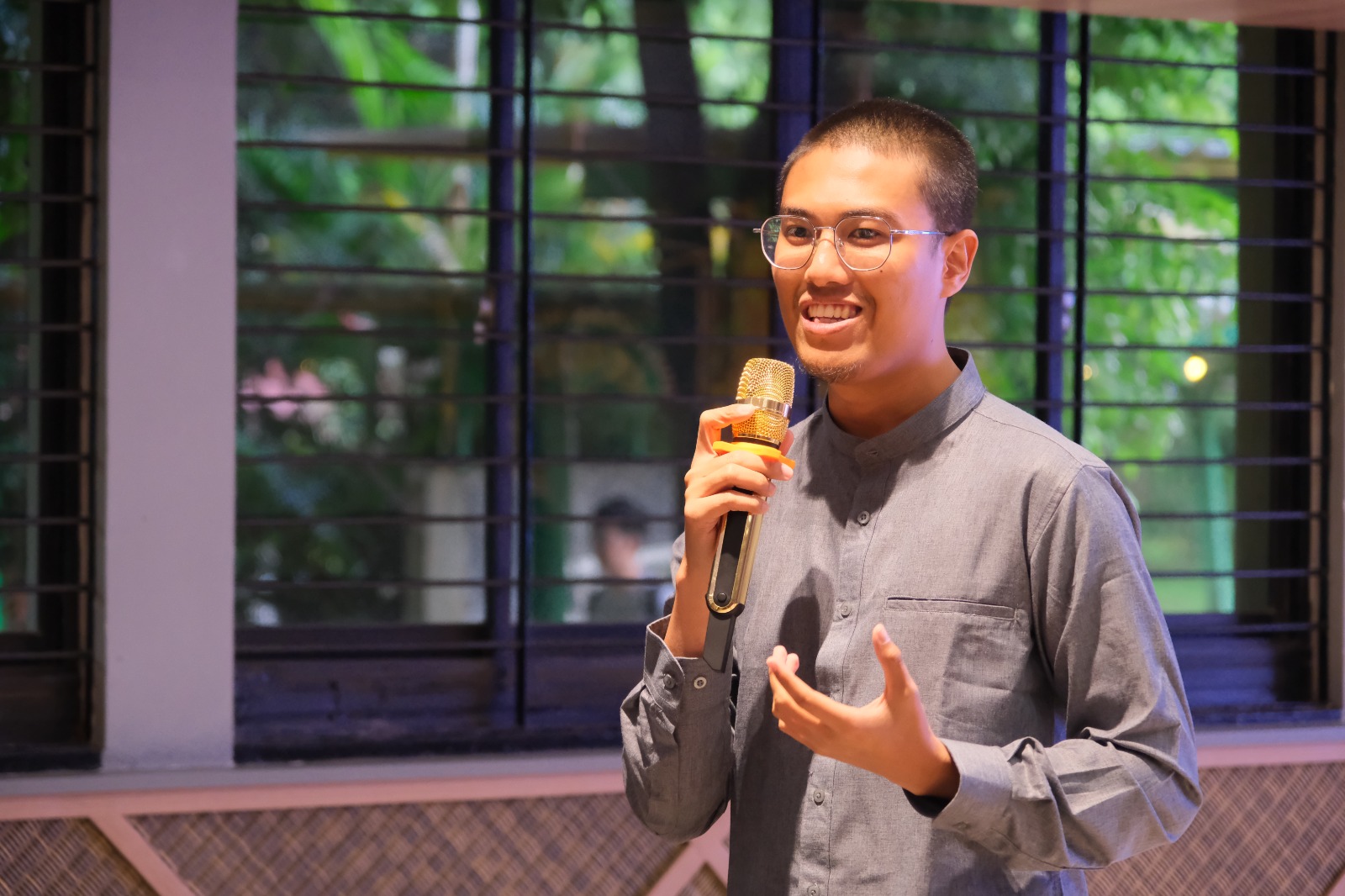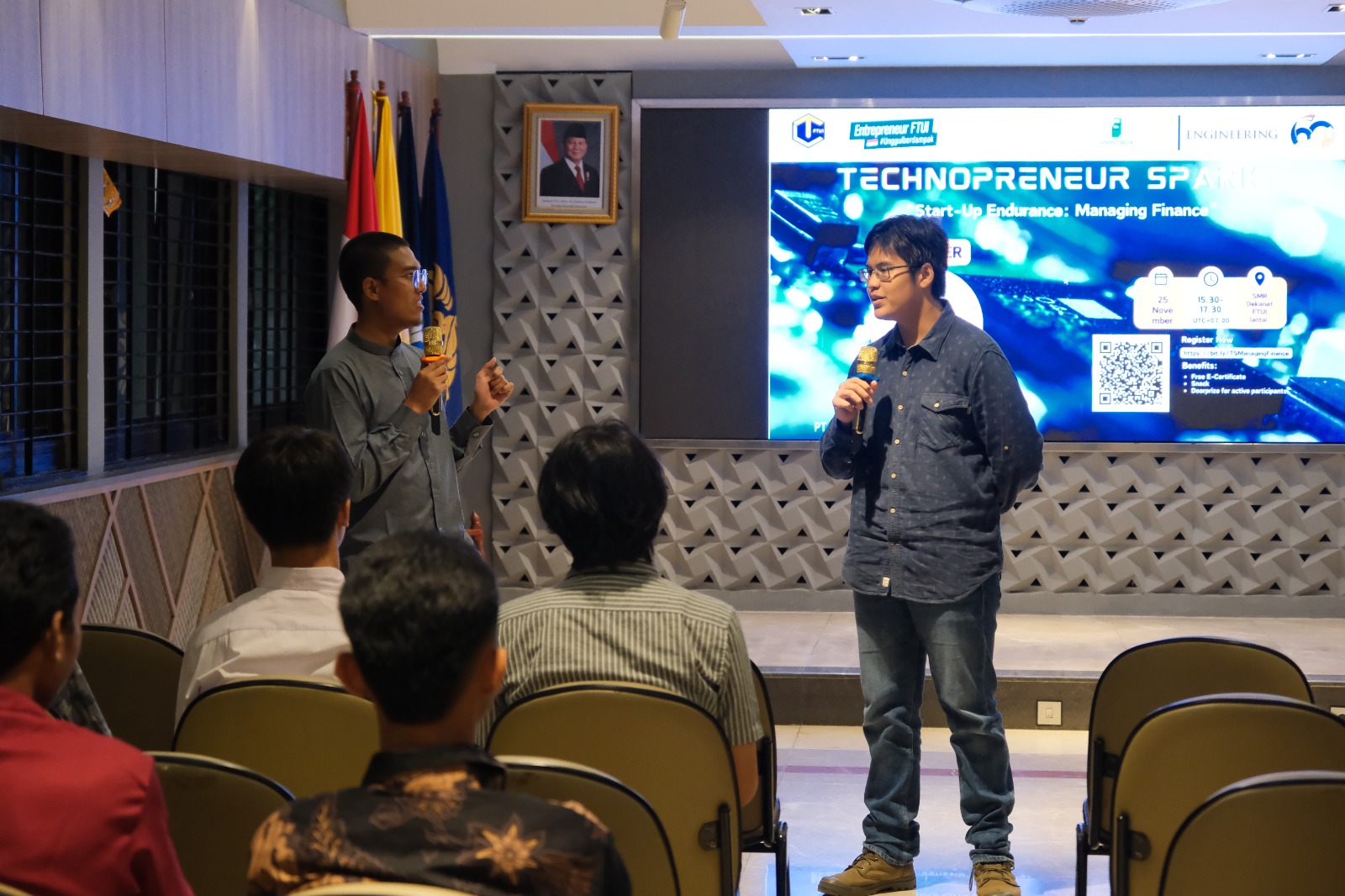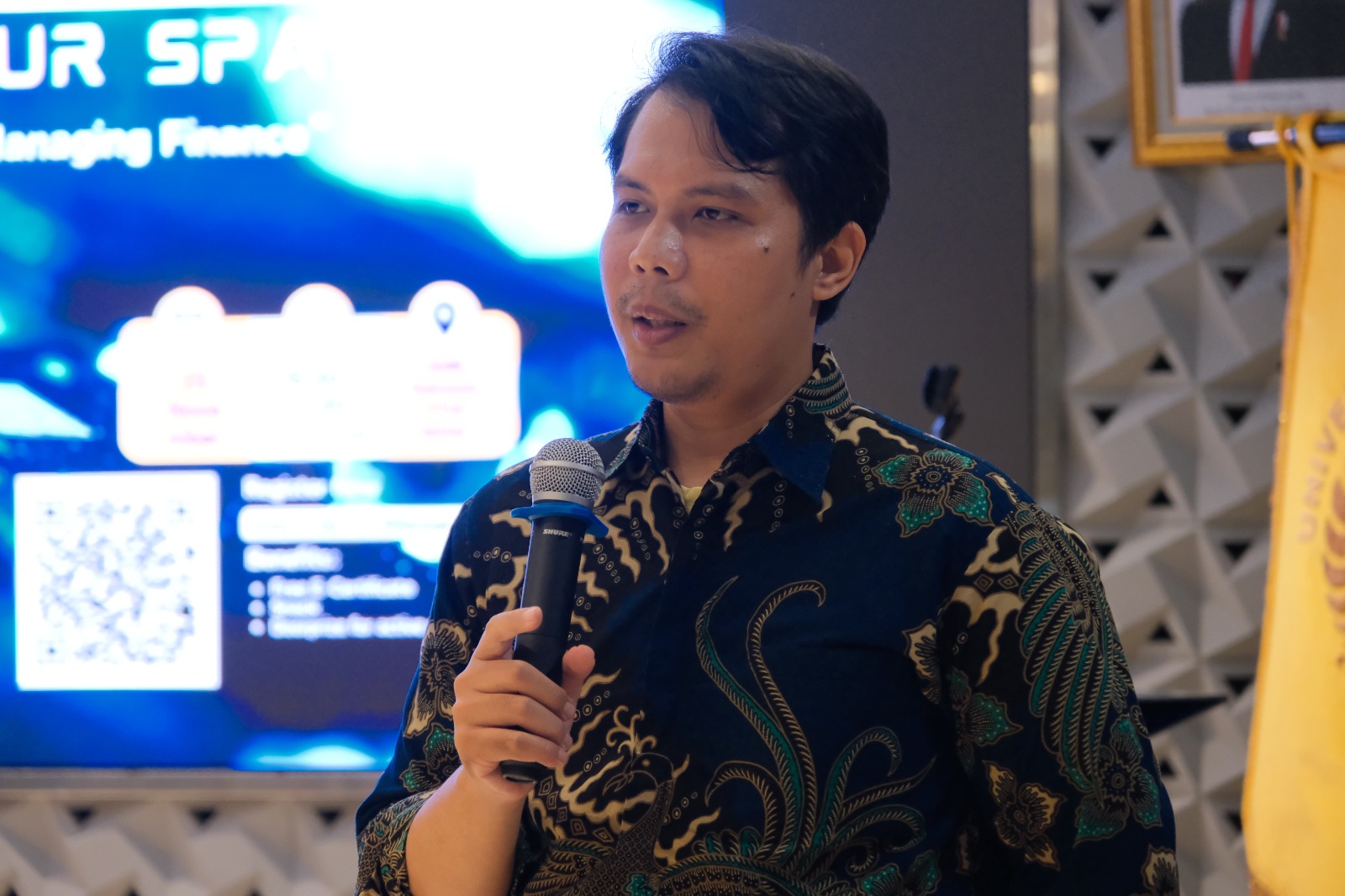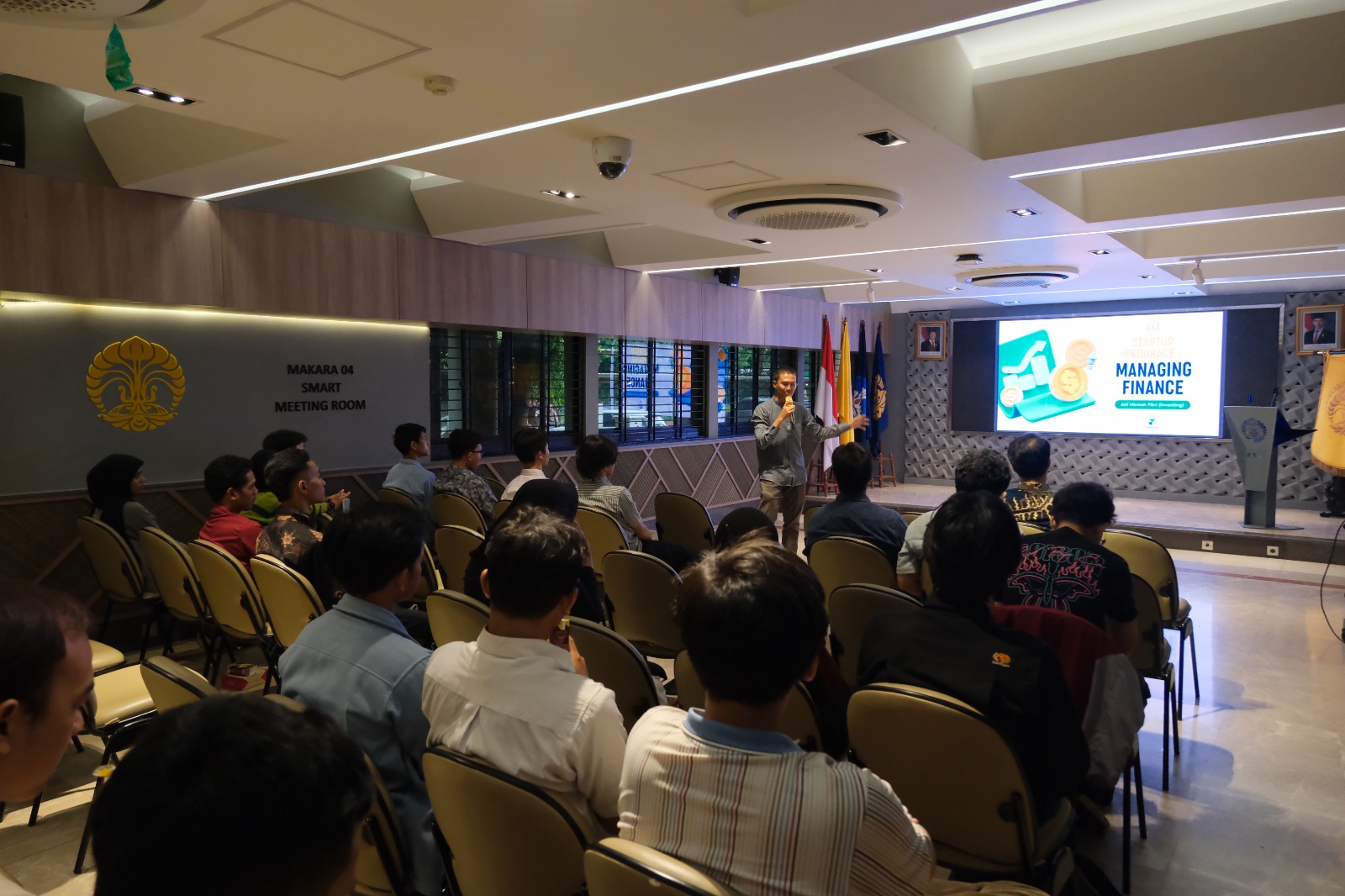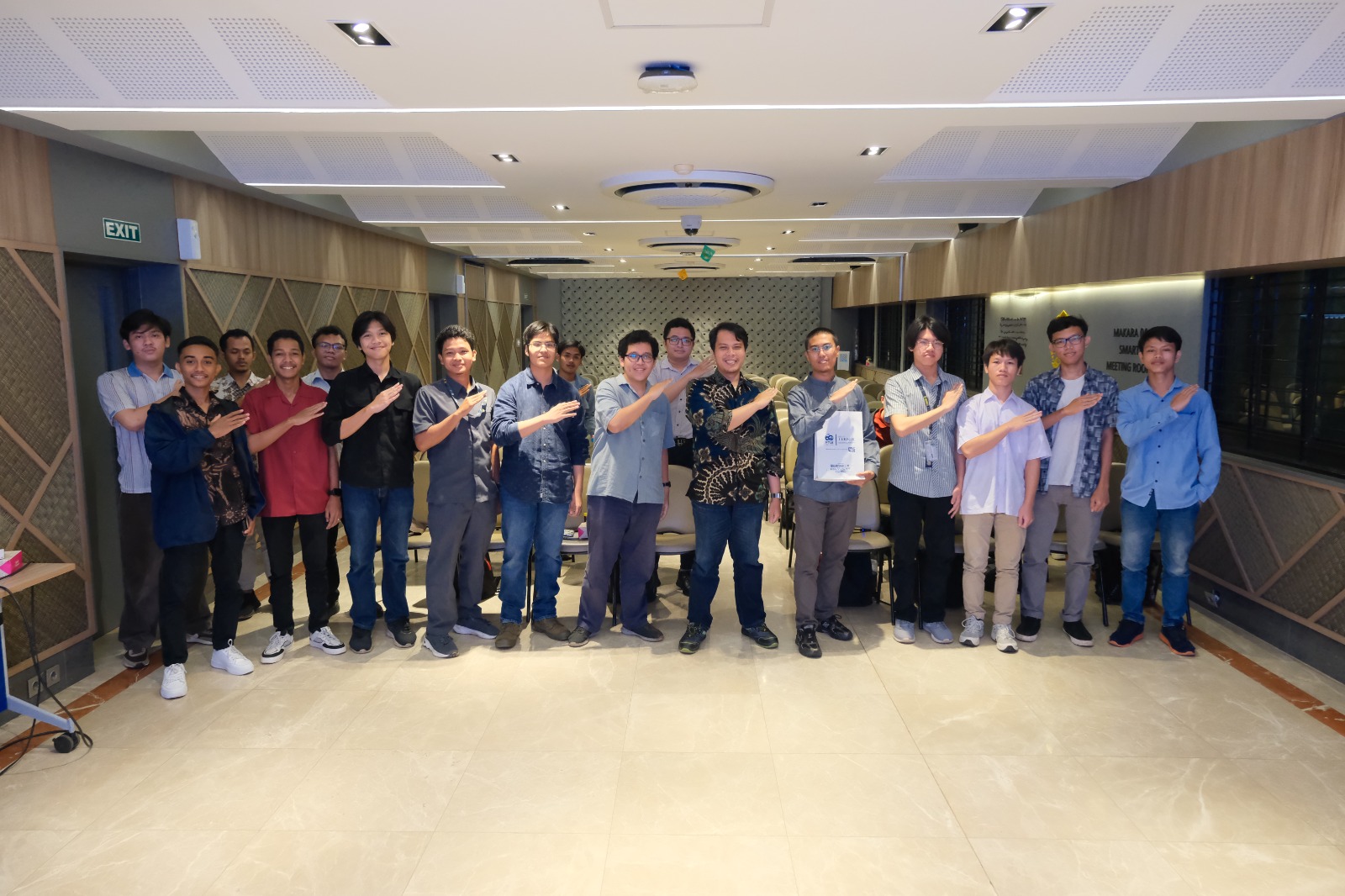On Monday (25/11), the Faculty of Engineering, Universitas Indonesia (FTUI), once again organized Technopreneur Spark, aimed at providing technology-based entrepreneurship education for its students. The guest this time was Alif Hikmah Fitri, Chief Executive Officer of PT Startup Inovasi Indonesia (Inventing), whose product, PrintBox, is widely used on campuses and in schools. PrintBox is a vending machine that was connected to the invention.id website, simplifying document printing. The event at the Smart Meeting Room in the FTDean’sn’s Building carried the theme”Startup Endurance: Managing Finance”.
Opening the event, Dr. Kenny Lischer, S.T., M.T. delivered his remarks.”We have been conducting this program regularly on a monthly schedule, and I see several familiar faces who have attended previous events. At the WIN unit, our main goal is to develop startups at FTUI through the incubation program Technopreneurship Camp. We will provide information regarding funding opportunities for those planning to or have already established a startup. We hope you can become new CEOs, following iAlif’s footsteps”.
Entering the primary session, Alif explained how to manage finances to ensure the sustainability of a startup. Alif highlighted that up to 90% of startups fail within their first five years, with 21% failing in the first year, 30% in the second year, and 50% by the fifth year. “More concerning, ten-year statistics show that 70% of the remaining startups do not survive their first decade,” Alif added.
Among the three levels of financial management—Ideation, Bootstrap, and Scale-Up—Alif focused on the Ideation stage in this session. At this stage, startup founders can take several actions, such as participating in startup competitions, conducting market surveys, and performing data research.
Additionally, Alif discussed various costs involved in building a startup. These include fixed costs, variable costs, capital costs (capex), and operational costs (opex). “Fixed costs include infrastructure, equipment, assets, and licensing fees, while variable costs consist of employee salaries, raw materials, and shipping costs,” Alif explained.
The session concluded with a Q&A segment between participants and Alif. Various questions were asked about Alif’s experience running a startup. The event wrapped up with the presentation of an award from FTUI to Alif and a group photo session.
***
Public Communication Office
Faculty of Engineering, Universitas Indonesia

